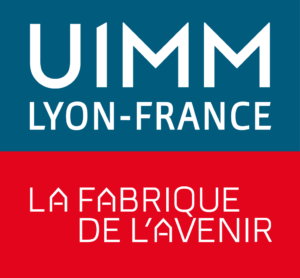Industry 4.0, only a technological revolution?
Industry of the future or industry 4.0, what are we talking about? What definition should be given to these phenomena? 4 keys to understand the industrial digital transformation.
Digital Transformation and Industry of the Future
On a global scale, the French industry has fallen behind in its ability to integrate new technological solutions. The New Industrial France (NFI) program, initiated in 2013, seeks to stem this loss of momentum by modernizing tools.
Since 2018, with the industry of the future, it is another step towards the future that is achieved. This government action plan is now to dive into digital transformation by further integrating new technologies, to evolve not only the production systems, but also the entire business model of SMEs and ETIs in the industry.
With the leap forward in miniaturization and digital communication, the entire company benefits from tools with enormous potential. The cloud is revolutionizing the way we design, produce, market and manage our organization. From marketing to finance, through HR to operations management, everyone is going digital. Developing agility, productivity and efficiency through continuous improvement, the declared objective is to gain a strong position in the global competition.


So what is Industry 4.0?
Industry 4.0, does it have a different definition that nuances the industry of the future? The line is thin.
Industry 4.0 comes from the 2011 edition of the Hannover Fair. It was at this German exhibition of industrial technology that the concept appeared. Thus named, it refers directly to the 4th industrial revolution in progress. Indeed, after the era of the steam engine and mechanization, then of the production lines of the 19th century, of automation in the 70’s, the industrial world, thanks to miniaturization and the leap forward in telecommunications of the 21st century, is experiencing a new revolution.
The factory is changing its face once again with the Smart Factory. These are the tools of this Smart Factory that Industry 4.0 defines: connected objects, CAD, cobots, additive manufacturing, virtual and augmented reality, which are entering in a new kind of manufacturing chain. Centered on connected tools and cyber-physical systems, this factory of the future aims to optimize production as much as possible, in terms of quality, pace and cost.
The industry of the future is today
The industry of the future is both a declination and an extension of the Industry 4.0 concept. While the latter focuses on the tools, the industry of the future profoundly rethinks all the foundations and the classic organization of the industrial ecosystem.
We no longer calculate the price of a product according to its manufacturing cost; we use new technologies to open up possibilities, and we adapt the production method to reach a price. In line of sight: respond to the customer in record time and succeed in manufacturing non-standard products at the cost of a mass production.
This new face of the industry of the future, whatever its name says, is not a projection on the future. Although constant research and development suggest many innovations to come, it is definitely a reality in the present.
Although constant research and development suggest many innovations to come, it is definitely a reality in the present. Sensors collect a mass and diversity of information in real time, AI analyzes them, and the human intervenes in a high value-added mission to take advantage of it. Sensors collect a mass and diversity of information in real time, AI analyzes them, and the human intervenes in a high value-added mission to take advantage of it. They interact and collaborate constantly, with the customer now at the heart of the organization.


What is changing on the ground
Industry 4.0 corresponds to a profound change and affects the industrial model in its entirety.
A new model of organization
Traditionally, the industrial world was known for its pyramidal organization with top-down information and a strong compartmentalization of functions and roles in the company.
The industry of the future is now like a collective work, designed to meet the expectations of a customer, and around which complementary interconnected actors mobilize new algorithms. It is the whole way of implementing the production that changes. The notion of the tertiary and secondary sectors is crumbling, as are those of the trade or sector, in favor of a flexible collaborative dynamic that takes place in real time. The separation between manufacturing and service is also blurring, with Big Data used to optimise production as well as marketing, management control or commercial relationship.
Industry 4.0 is also the key to French reindustrialization: this autonomous and ultra-optimized connected network, capable of operating from any point on the planet, is causing a real turning point in global competition.
What is changing on the ground
A social and environmental consideration
The industry of the future takes into consideration broader objectives than manufacturing itself. When it talks about optimizing, it integrates human and environmental issues in its thinking.
Predictive maintenance, for example, not only avoids production interruptions, but also increases the lifetime of the machines and enables the monitoring of energy consumption. Cobots assist the technician in his work while limiting the risks, the arduousness and the repetitiveness. Digitalization thus makes production more efficient while reducing environmental impact and better preserving human and material resources.
A new managerial approach
If the industry of the future relies on its technological and organizational agility, the agility of its human resources is not to be outdone. In this environment, jobs are also changing, and profiles are evolving. The very notion of competence and formation is shifting towards the idea of a learning process both permanent and collaborative, with a collaborator who is constantly re-learning and reinventing. Agility, adaptability and flexibility in the face of innovative methods call for a new way of recruiting, integrating, retaining and managing human resources. In this French industrial reconquest, managerial practice is accompanying the change and is also changing, in the way it communicates and understands project management and the notion of responsibility.
The ambition of French industry’s SMEs and SMBs is to reposition themselves in international competition, while solving issues as urgent as they are complex, such as energy and resource management, cybersecurity, worker health, and the transmission of know-how. And it’s on track! The TRA-C Industrie group is not alone in wearing the colors of the French Lab. The assiduity of R&D, the governmental supports, the technological advances that follow and surpass each other indicate a motivating future for the industry of the future.








